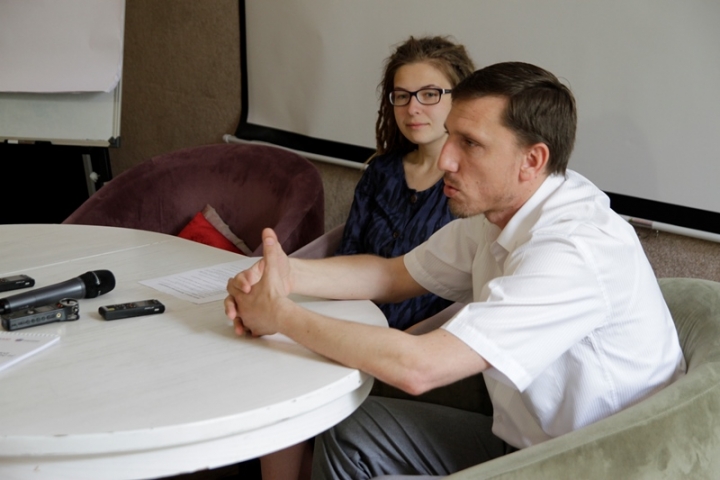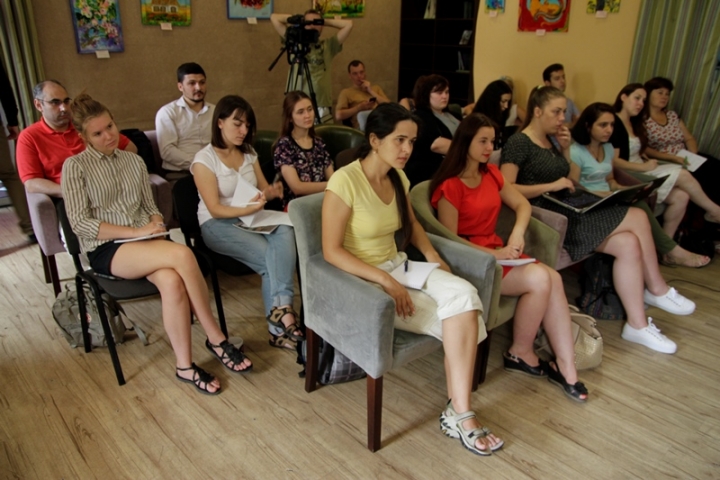When people face the regular set of cliché about their social group in the media, the reaction can be very different. Someone is angry and makes a vow not to talk to journalists. Someone complains that "journalists are incorrigible: give them a stir, or they will make the stir by themselves". Corrigible or incorrigible is point at issue, but the fact is that it is possible to train a new generation of journalists, with an understanding of the basics of the particular social group. After all, it is much easier to impart the desire to understand to those, who are open-minded and are constantly looking for a new food for thought.
That was the aim of the trainings under the project "Journalism of the Tolerance", which was held in Kyiv on July 29-30. The trainings were initiated by the Media Development Foundation with the support of the edition “Kyiv Post” and the organisation “Internews”. At the invitation of the organizers, master of Sharia Sciences and head of the executive committee of AUASO "Alraid" Seyran Arifov also attended one of the meetings focused on the issue of the Crimea.
“I really liked the format of the event — opened discussion, without excessive, oppressive officialism. Mainly young journalists attended the lecture, but there were also older ones,” — said Sheikh Seyran. — I talked about the basic issues of Islam. In particular I described stereotyped views about the religion itself and its followers; about the problems of the Middle East, the extremism, and the Islamic approach to this problem, the political impact on the destabilization of many Muslim countries, situations of which have already been shattered".
The audience took keen interest in the topic: the journalists actively participated in the discussion, asking questions about the issue of extremism and the origins of various extremist groups uses religious slogans as a cover. It is significant that there was no stereotype in thinking: a few stereotype questions on polygamy and "oppressed" women were asked as a joke to defuse the tension a little after discussing difficult topics on extremism.
The participants of the discussion (there were also Crimean Tatar public figure Bekir Suleymanov and deputy project coordinator "KrymSOS" Yevheniia Andriiuk) were asked many questions about the current situation of the Crimean Tatars in the occupied peninsula, about the life of the internally displaced Crimean Tatars on the continental Ukraine, the national Crimean Tatar schools, preservation of language, intermarriages ... The session of questions and answers has grown into a large discussion.
Source: ALRAID





